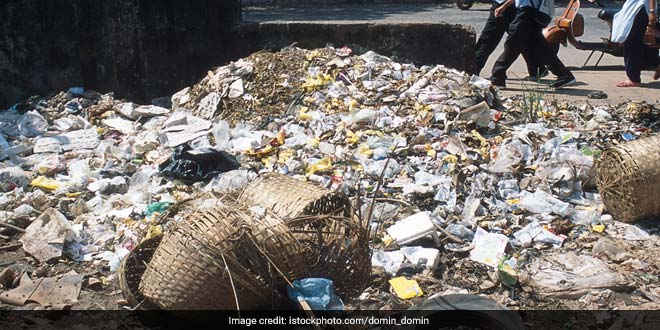Highlights
- The waste management bylaws in Pune will be effective from January 2018
- The bylaws are very precise in their definition of waste and waste handling
- The bylaws also specify the role of the Pune Municipal Corporation
New Delhi: A recurring problem in India’s waste landscape is the absence of stringent laws to address the problem of waste. Municipal laws which govern waste and waste management are not stringent enough to not just address the issue of indiscriminate waste disposal but also lay down a structured framework of waste collection, disposal and treatment. Pune was no exception as its existing waste management bylaws were proving to be insufficient to address the city’s growing waste problem. Come 2018, Pune will get a set of new waste management bylaws which will ensure maximum waste collection and segregation in the city.
The Pune Municipal Corporation (PMC) approved the bylaws on December 15, five years after they were drafted in 2012. The municipal corporation is hopeful that the bylaws will become effective by the end of January 2018.
The bylaws drafted by the PMC are wholesome and complete in nature and address every issue related to waste and waste management, ranging from how waste is generated to categorising types of waste. Important nomenclature related to waste management, such as waste segregation, waste processing, disposal of waste, bio-medical waste and e-waste have found significant mention in the bylaws, along with their definition and steps necessary to be taken to ensured that they are managed well. Each section explains a particular type of waste, its source of origin and how it is to be handled. The emphasis on bio-medical waste, electronic waste and construction and demolition waste is of particular interest, as this also marks the first time the PMC is openly advocating the need to treat these as serious waste problems.
The bylaws cover all major and minor types of waste that generates in the city. This is important because often city civic bodies tend to focus on one particular type of waste and ignore the other. With the bylaws now formed, that will no longer be the case, said Suresh Jagtap, Joint Commissioner, Pune Municipal Corporation.
Each stage, beginning from waste generation to segregation and disposal for each type of waste is explained in the bylaws. This helps in the formation of a proper stakeholder management model where every type of waste generator is aware of the type of waste he/she is generating and can be treated accordingly. The bylaws also provide a list of dos and do nots, which when practiced will reduce the burden of waste management from the PMC’s shoulders. For example a generator of plastic waste may not be fully aware of the harm he is doing. The bylaws mention what needs to be done to reduce the generation of such waste and how can such waste be treated effectively. The PMC is hopeful that once the bylaws are popularised, people will have a better understanding of waste management.
The responsibilities of PMC are thoroughly mentioned in the bylaws, which makes us compliant to them. People are often fined for disposing waste or using plastic, but it is also important to identify the responsibility of a municipal body. The bylaws point to us towards our responsibilities in ensuring waste management, said Mr Jagtap.
Pune did well to become India’s 13th cleanest city in Swachh Survekshan 2017 and is looking to perform even better in the 2018 edition of the Survekshan. The waste management bylaws are all set to bring in exemplary change in the city’s waste management scenario. All PMC is waiting now is an approval from the state government, and on getting it, will issue a notification, making the bylaws compulsory for everyone in Pune to adhere to.
Also Read: Goa’s New Year Resolution: To Become Plastic And Garbage Free By 2022




























